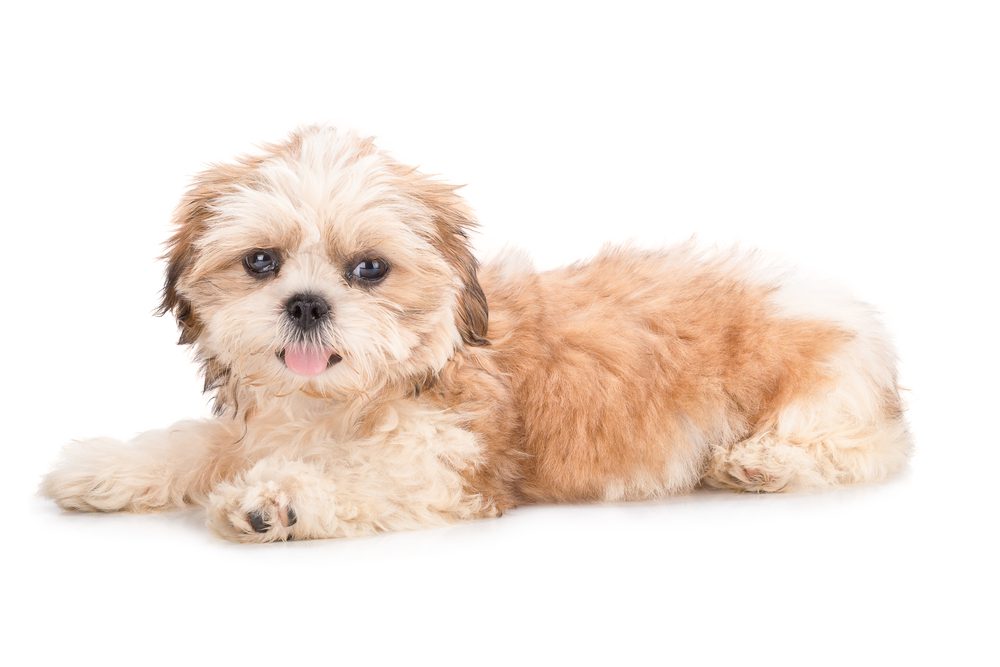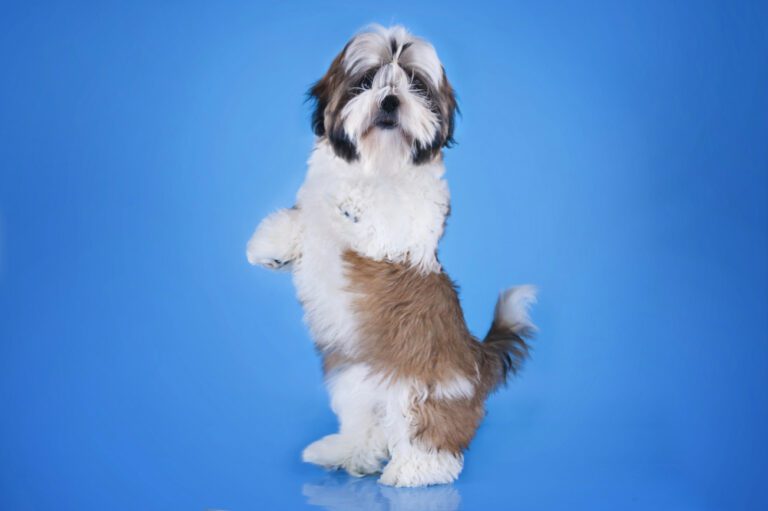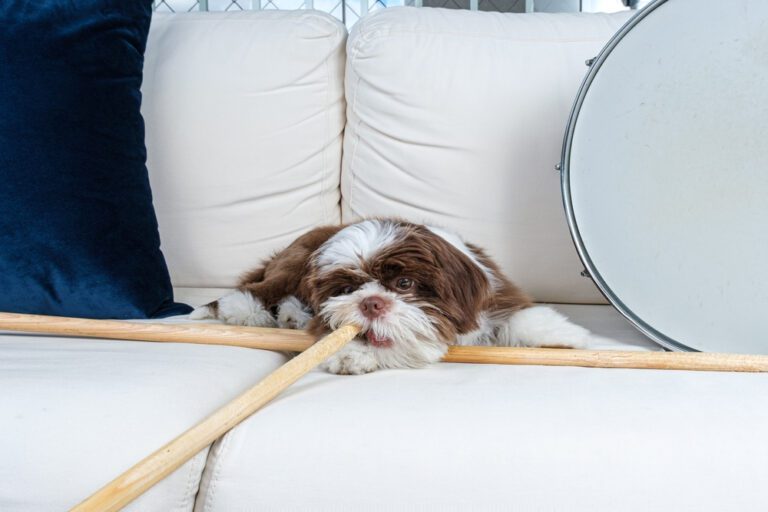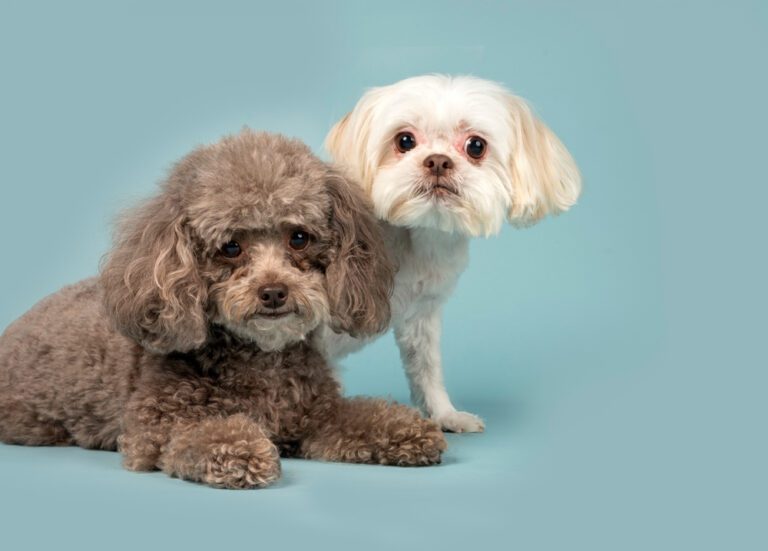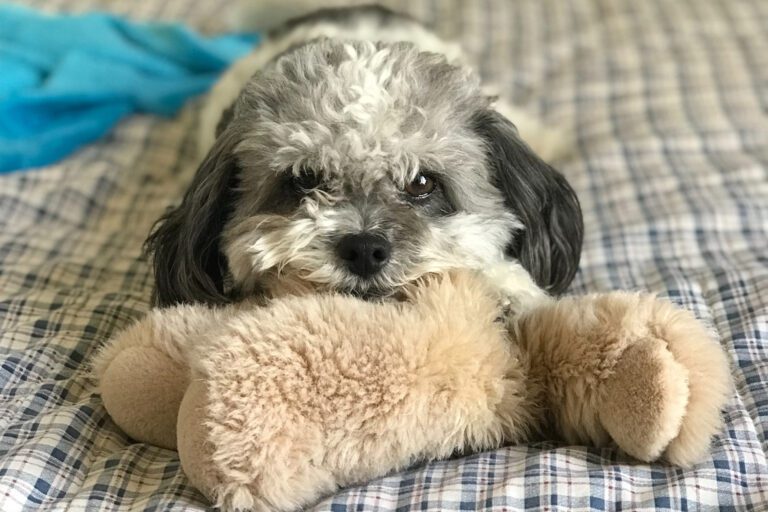Paw Licking In Shih Tzus: How to Stop your Shih Tzu from Excessive Paw Licking
Is your Shih Tzu constantly licking their paws, and it’s becoming a concern? Don’t worry; we’ve covered you with Paw Licking In Shih Tzu’s solutions to stop this behavior. Excessive paw licking can indicate underlying issues such as allergies, skin infections, or anxiety. Understanding the reasons behind your Shih Tzu’s excessive paw licking is the first step toward finding a solution.
In this article, we’ll delve into the various causes of excessive paw licking in Shih Tzus and provide practical solutions to help you address this issue. From identifying allergies to implementing proper grooming techniques, we’ll guide you through stopping your furry friend from incessantly licking their paws.
Our expert advice will assist you in determining whether the problem is related to environmental factors, food sensitivities, parasites, or behavioral issues. With this knowledge, you can make informed decisions and proactively alleviate Shih Tzu’s discomfort. Prepare to end excessive paw licking and keep your Shih Tzu happy and healthy.
Understanding why Shih Tzus lick their paws excessively
Excessive paw licking in Shih Tzus can be a symptom of various underlying issues.
- Allergies are one of the most common culprits. Shih Tzus can develop allergies to environmental factors such as pollen, dust mites, or specific cleaning products.
- Food allergies or sensitivities to ingredients in their diet can also trigger excessive paw licking.
- Parasites like fleas or ticks can irritate and lead to paw licking.
- Another possible cause of excessive paw licking is skin infections.
- Shih Tzus are prone to bacterial or yeast infections, which can cause itching and discomfort.
- It’s essential to sift through your dog’s paws for any signs of redness, swelling, or discharge.
- If you notice any of these symptoms, it’s crucial to consult with your veterinarian for a proper diagnosis and treatment plan.
To determine the underlying cause of your Shih Tzu’s excessive paw licking, consider any recent changes in their environment, diet, or exposure to potential allergens. Keeping a detailed journal of your dog’s behavior and any triggers you notice can assist your veterinarian in making an accurate diagnosis. Once the cause is identified, you can take the necessary steps to address the issue.
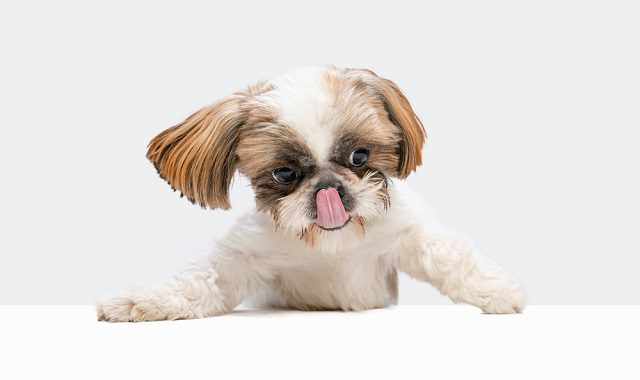
The potential consequences of excessive paw licking in Shih Tzus
While paw licking may seem harmless, excessive and prolonged licking can lead to several issues for your Shih Tzu. The constant moisture from licking can soften the skin, making it more susceptible to bacterial or yeast infections. This can result in redness, swelling, and an unpleasant odor.
Furthermore, excessive paw licking can cause hair loss and discoloration of the fur on the paws. The constant friction and moisture can irritate the skin, leading to sores or hot spots. These open wounds can be painful for your Shih Tzu and require additional veterinary care to heal properly.
Excessive paw licking can sometimes be a sign of underlying anxiety or stress. Dogs may resort to repetitive behaviors like licking to self-soothe when they feel anxious or bored. It’s essential to address the root cause of their anxiety to prevent the behavior from worsening and affecting their overall well-being.
Identifying common triggers for excessive paw licking in Shih Tzus
To effectively address excessive paw licking in your Shih Tzu, it’s crucial to identify the common triggers that may be causing this behavior. Environmental factors like pollen, dust mites, or specific cleaning products can trigger dog allergies and lead to paw licking. When exposed to different environments or substances, notice any patterns or changes in your dog’s behavior.
Food sensitivities or allergies can also contribute to excessive paw licking. Common allergenic ingredients in dog food include beef, chicken, wheat, and soy. Consider switching to a high-quality, hypoallergenic dog food specifically formulated to address food sensitivities. Consult your veterinarian to determine the most suitable diet for your Shih Tzu.
Parasites like fleas or ticks can cause significant dog discomfort, leading to excessive paw licking. Regularly inspect your Shih Tzu for signs of these pests and take appropriate measures to prevent infestations. A monthly flea and tick preventative medication recommended by your vet can help protect your dog from these irritating parasites.
Tips for preventing excessive paw licking in Shih Tzus
Preventing excessive paw licking in Shih Tzus requires a multi-faceted approach. Start by ensuring your dog’s paws are clean and dry. Regularly wash their paws with a mild dog-friendly shampoo and thoroughly dry them after walks or outdoor activities. Moisture can contribute to skin irritation and create an ideal environment for infections to develop.
Trimming the hair around your Shih Tzu’s paws can also help prevent excessive paw licking. Long hair can trap dirt and moisture, leading to irritation and discomfort. Use a pair of round-tip scissors or seek professional grooming assistance to keep the hair around the paws trimmed neatly.
Additionally, providing your Shih Tzu with plenty of mental and physical stimulation can help reduce anxiety and prevent boredom-induced paw licking. Engage your dog in regular play sessions, provide puzzle or treat-dispensing toys to keep their minds occupied, and establish a consistent daily routine. This structure and stimulation can help alleviate stress and anxiety, reducing the likelihood of excessive paw licking.
Home remedies for soothing irritated paws in Shih Tzus
If your Shih Tzu’s paws are already irritated from excessive licking, you can try several home remedies to provide relief. One effective method is to soak your dog’s paws in warm water and Epsom salt. This can aid in minimizing inflammation and providing relief from any discomfort. Be sure to dry the paws thoroughly afterward to prevent further irritation.
Another natural remedy is applying a diluted apple cider vinegar and water solution to your Shih Tzu’s paws. The acidity of apple cider vinegar can help restore the skin’s pH balance and relieve itching. Mix equal parts of apple cider vinegar and water, then soak a clean cloth in the solution and gently wipe your dog’s paws.
Coconut oil can also be beneficial for soothing irritated paws. Its anti-inflammatory and moisturizing properties can help reduce redness and promote healing. Apply a thin layer of coconut oil to your Shih Tzu’s paws and massage it gently. Be sure to use organic, unrefined coconut oil to ensure its purity and effectiveness.
The importance of a balanced diet in preventing excessive paw licking in Shih Tzus
Proper nutrition is vital in preventing excessive paw licking in Shih Tzus. A balanced diet can help strengthen your dog’s immune system, reduce inflammation, and improve overall skin health. Opt for high-quality dog food free from common allergenic ingredients and contains essential nutrients like omega-3 fatty acids, vitamins, and minerals.
Consider incorporating natural supplements into your Shih Tzu’s diet to support their skin health. Omega-3 fatty acids, such as fish oil, are anti-inflammatory and can help alleviate itching and irritation. Consult your veterinarian to determine the appropriate dosage for your dog’s size and breed.
Professional treatments and therapies for excessive paw licking in Shih Tzus
In some cases, home remedies and lifestyle changes may not be sufficient to address excessive paw licking in Shih Tzus. Your veterinarian may recommend additional professional treatments and therapies to provide relief for your furry friend. These may include topical medications to treat skin infections, anti-inflammatory medications to reduce itching and inflammation, or allergy testing to identify specific triggers.
If anxiety or stress is a contributing factor, your veterinarian may suggest behavioral therapy or using pheromone-based products to help calm your Shih Tzu. These products can create a sense of security and comfort for your dog, reducing the need for self-soothing behaviors like excessive licking.
When to seek veterinary help for excessive paw licking in Shih Tzus
While many cases of excessive paw licking can be managed with at-home remedies and lifestyle changes, it’s essential to know when to seek veterinary help. If your Shih Tzu’s paw licking persists despite your efforts, or if you notice any signs of infection such as redness, swelling, or discharge, it’s crucial to consult your veterinarian.
Your veterinarian can thoroughly examine and recommend appropriate diagnostic tests to identify the underlying cause of your Shih Tzu’s excessive paw licking. They can also provide tailored treatment options and offer guidance on managing your dog’s condition effectively.
Preventing boredom and anxiety in Shih Tzus to reduce paw licking behavior
Preventing boredom and anxiety is crucial in reducing excessive paw licking in Shih Tzus. Give your dog plenty of mental and physical stimulation through regular exercise, interactive play, and training sessions. Engage them in activities they enjoy, such as puzzle toys, hide-and-seek games, or obedience training.
Creating a calm and secure environment for your Shih Tzu is also crucial. Establish a consistent daily routine, including regular feeding times, exercise, and rest. Provide a comfortable and safe space for your dog to retreat when they feel overwhelmed or anxious. To create a soothing atmosphere, consider using pheromone-based products, such as diffusers or sprays.
Conclusion: Paw Licking In Shih Tzus
Excessive paw licking in Shih Tzus can be challenging, but with the proper knowledge and approach, you can help your furry friend find relief. By understanding the underlying causes, implementing preventive measures, and seeking appropriate veterinary help, you can effectively manage excessive paw licking and keep your Shih Tzu happy and healthy.
Remember to consult your veterinarian for a comprehensive evaluation of your Shih Tzu’s condition and obtain professional guidance tailored to your dog’s specific needs. With patience and diligence, you can end excessive paw licking and provide your Shih Tzu with the comfort they deserve.

